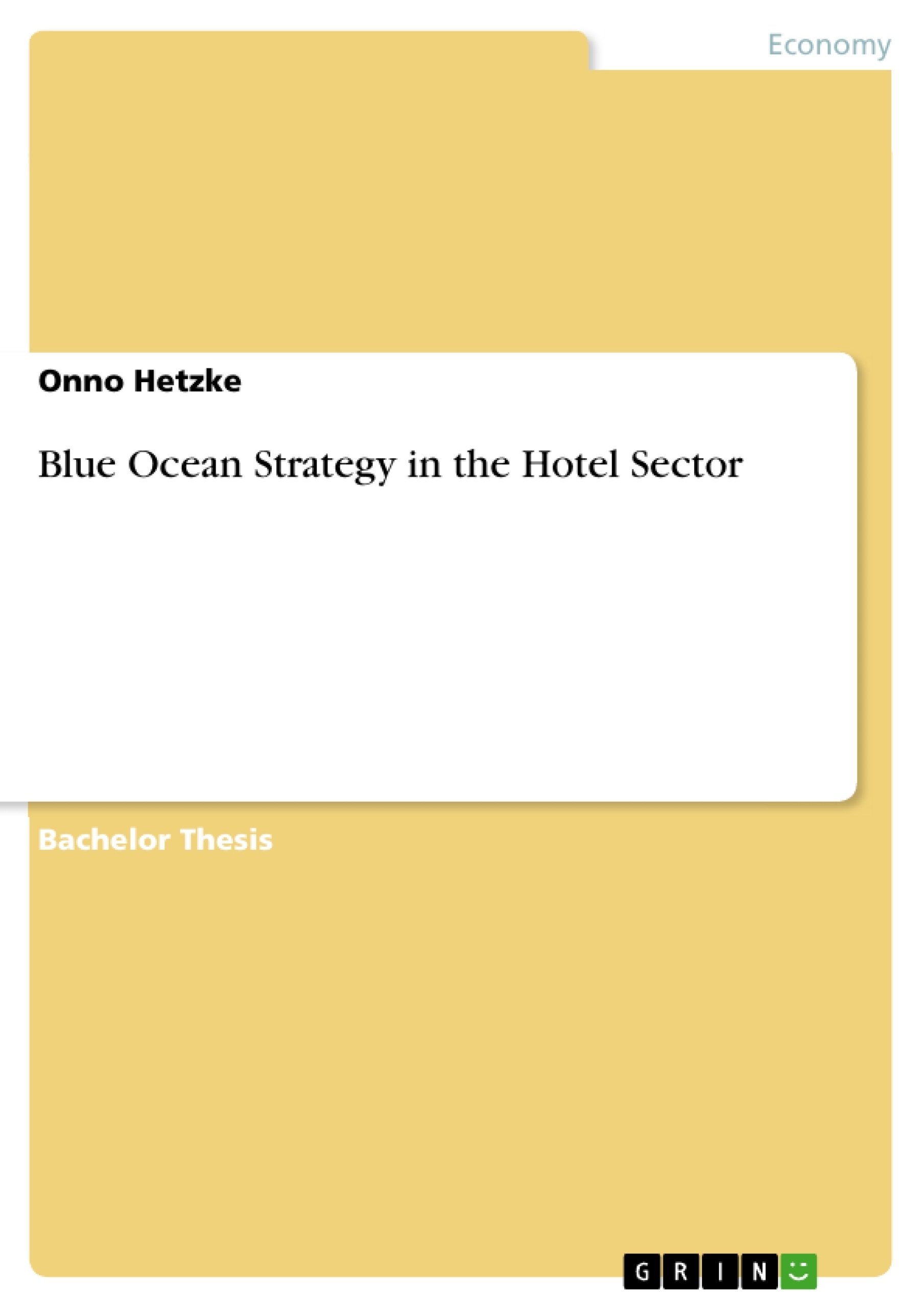The hospitality industry experiences abundant growth rates, although it is one of the world’s toughest markets. Therefore, entrepreneurs need to aim for differentiation in order to gain an uncontested market position.
Blue Oceans are more than a natural wonder and a loophole for mass-market participants: It is an efficient strategy management tool that focuses on finding innovative business concepts and thus the key to success for adaptive companies. In contrast to saturated Red Oceans, Blue Oceans feature value innovation through an adjusted offering with costs benefits.
Similar to the Darwin’s “Survival of the Fittest”-approach the Blue Ocean Strategy depends on customizing and enhancing an already existing concept with innovative features.
In such highly competitive markets, monopolists – those who are able to find a market niche – exhibit the best chances for economic success.
W Hotels and MotelOne are two well-established paradigms for innovativeness in the hospitality industry. While W Hotels succeeded in adopting an exclusive lifestyle hotel destination with a focus on design, fashion and music, MotelOne concentrated on a premium low-cost oriented design-approach. Together both parties reinvented their segment through implementing trailblazing new concepts combined with the value- adding design factor. Moreover, Blue Oceans need to eliminate dispensable options, as W is less formal and more liberal than all its competitors, whereas MotelOne discarded unprofitable amenities like telephones, minibars or room service.
The economic surplus derives from wider target groups as well as higher profit margins, which is why trendsetting Blue Oceans are classified as a future-proof and promising corporate path.
Inhaltsverzeichnis (Table of Contents)
- Abstract
- Table of contents
- List of figures
- List of abbreviations
- Introduction
- Hospitality industry
- Significance for overall economy
- Hotel sector profile
- Blue Ocean Strategy
- Conception
- Creating Blue Oceans
- Principles
- Implementation
- Tools and frameworks
- Red vs. Blue Oceans
- Benefits and value
- Critics
- Positioning for hotels
- SWOT Analysis
- Strengths
- Weaknesses
- Opportunities
- Threats
- SWOT Analysis
- Examples
- MotelOne
- Implementation
- Analysis
- Evaluation
- W Hotels
- Implementation
- Analysis
- Evaluation
- MotelOne
- Outlook
- Critical evaluation
Zielsetzung und Themenschwerpunkte (Objectives and Key Themes)
This thesis examines the application of Blue Ocean Strategy within the hotel sector, focusing on the case studies of W Hotels and MotelOne. The primary objective is to analyze how these two companies achieved success by implementing innovative business concepts and differentiating themselves from competitors in a highly competitive market.- The challenges of the hotel sector and the need for differentiation
- The principles and implementation of Blue Ocean Strategy
- The application of Blue Ocean Strategy by W Hotels and MotelOne
- The impact of Blue Ocean Strategy on customer experience and value creation
- The potential for Blue Ocean Strategy to create sustainable competitive advantages
Zusammenfassung der Kapitel (Chapter Summaries)
- **Introduction:** This chapter introduces the topic of Blue Ocean Strategy within the hotel sector and outlines the thesis's focus on W Hotels and MotelOne as successful examples.
- **Hospitality industry:** This chapter discusses the significance of the hospitality industry for the overall economy and presents a profile of the hotel sector, highlighting its key characteristics and challenges.
- **Blue Ocean Strategy:** This chapter explores the concept of Blue Ocean Strategy, explaining its principles, implementation methods, and tools. It contrasts Blue Ocean Strategy with traditional competitive approaches within Red Oceans and analyzes its benefits and value creation potential.
- **Positioning for hotels:** This chapter analyzes the application of Blue Ocean Strategy to the hotel sector through a SWOT analysis, examining its strengths, weaknesses, opportunities, and threats.
- **Examples:** This chapter dives into the specific case studies of MotelOne and W Hotels. It examines their implementation of Blue Ocean Strategy, analyzes their success, and evaluates their impact on the hotel sector.
Schlüsselwörter (Keywords)
This research paper examines the application of Blue Ocean Strategy in the hotel sector, focusing on the case studies of W Hotels and MotelOne. The key terms and concepts explored include value innovation, differentiation, market segmentation, customer experience, brand identity, design, and sustainable competitive advantage. The study analyzes the successful implementation of innovative business concepts and the creation of uncontested market positions within the highly competitive hospitality industry.Frequently Asked Questions
What is the "Blue Ocean Strategy"?
It is a strategy focused on creating uncontested market space (Blue Oceans) through value innovation, rather than competing in saturated markets (Red Oceans).
How did MotelOne implement this strategy?
MotelOne focused on a "premium low-cost" design approach, eliminating unprofitable amenities like minibars and room service to offer high-quality design at a low price.
What makes W Hotels a "Blue Ocean" example?
W Hotels differentiated itself by creating exclusive lifestyle destinations centered around design, fashion, and music, moving away from formal hotel traditions.
What is "Value Innovation"?
Value innovation occurs when companies align innovation with utility, price, and cost positions, creating a leap in value for both the company and its customers.
Why is differentiation crucial in the hospitality industry?
The hotel market is highly competitive and saturated; without differentiation, companies are forced into price wars that diminish profit margins.
What are the risks or criticisms of the Blue Ocean Strategy?
The thesis includes a critical evaluation, discussing potential difficulties in maintaining an uncontested position as competitors eventually enter the "Blue Ocean."
- Quote paper
- Bachelor of Arts Onno Hetzke (Author), 2013, Blue Ocean Strategy in the Hotel Sector, Munich, GRIN Verlag, https://www.hausarbeiten.de/document/264194


